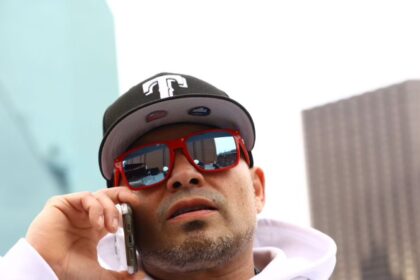In the heart of Billy-Berclau, a small town in northern France, a new factory is rising like a phoenix amidst the remnants of abandoned coal mines and a soon-to-be-closed engine plant. This gleaming facility, home to Automotive Cells Company (ACC), is at the forefront of a grand initiative to revive the region’s struggling economy by producing next-generation electric vehicle batteries.
This initiative is part of a larger project known as “Battery Valley,” which aims to bring new life to areas hit hard by globalization. With plans for three more electric car battery plants to open by 2026, this re-industrialization effort is seen as a way to combat rising support for the far-right National Rally party in regions facing significant job losses.
Despite efforts to boost industry and create jobs, including the establishment of new factories like the one in Billy-Berclau, political support has not shifted in favor of the government. In recent elections, National Rally secured victories in many towns, signaling a disconnect between economic development and political sentiment.
Local residents express mixed feelings about the economic transformation taking place in their town. While the new factory represents progress, many still struggle to make ends meet and feel uncertain about the future. These sentiments have fueled support for parties like National Rally, which promise to address issues like job security and immigration.
The ambitious Battery Valley project was designed to alleviate these concerns and revitalize the region’s economy. However, the success of this initiative has not translated into widespread political support for the government.
As the region grapples with economic challenges, the rise of far-right politicians like Marine Le Pen has underscored the need for comprehensive solutions to address job losses and economic instability. In response, President Macron has shifted focus towards reindustrialization and the development of cutting-edge technologies to create new opportunities for local residents.
Within the ACC factory, individuals like Christophe Lequimme see hope for a better future as they transition to new roles in the electric vehicle industry. Despite these personal success stories, broader concerns remain about the region’s economic and political future.
In the midst of these changes, tensions have emerged between economic progress and political sentiment. Local politicians like Bruno Bilde of the National Rally have capitalized on discontent to secure electoral victories, raising questions about the future direction of the region.
As Billy-Berclau navigates this complex landscape of economic transformation and political upheaval, the community remains divided on the path forward. While new investments offer opportunities for growth, underlying concerns about security, immigration, and cost of living persist, shaping the region’s political landscape.
Ségolène Le Stradic contributed reporting from Billy-Berclau.








